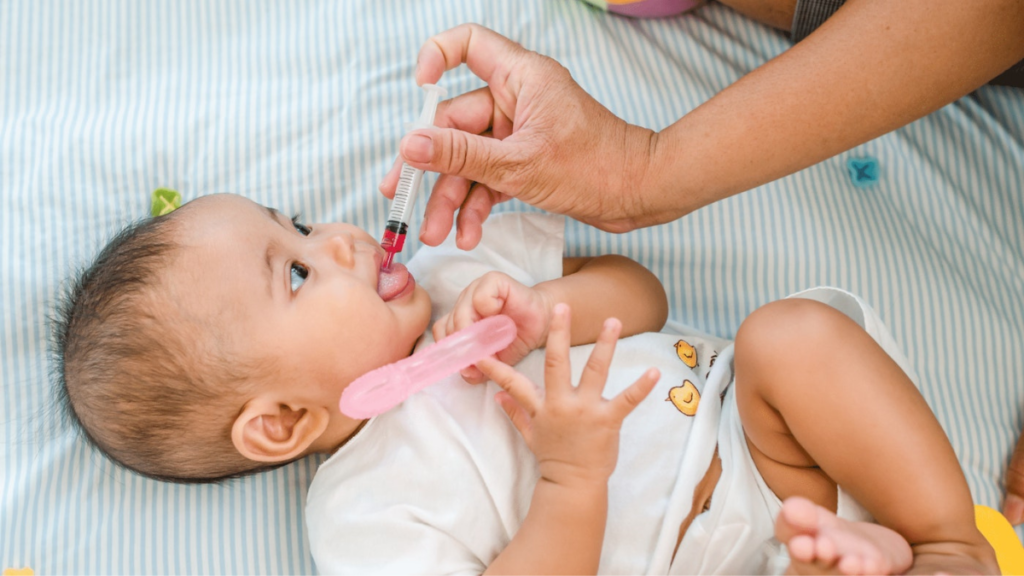
The last thing you want to do when your baby is sick is head out to the pharmacy. Prepare in advance by stocking up on commonly used over the counter medications, illness remedies, and supplies. Below is a helpful list to guide you!
Some of the medications listed do require guidance from a pediatrician. Always contact your child’s doctor if your baby has a fever of unknown cause. This is especially important for a baby under 12 weeks old.
Be sure to look at the expiration dates of medications and ointments when shopping. Ideally your kit will last through your baby’s first year!
We recommend keeping all of these supplies together, so you can easily find what you need. Having everything in a drawer or bin of the changing table can be helpful in case you need to quickly grab something like the thermometer or snotsucker! Every year around your child’s birthday, check your supplies and make sure nothing is expiring and that you have the appropriate medication for your child’s age. That way when the next time illness strikes in the middle of the night illness, you’ll have everything you need!
© 2023 All rights reserved Baby & Toddler - part of parent promotions